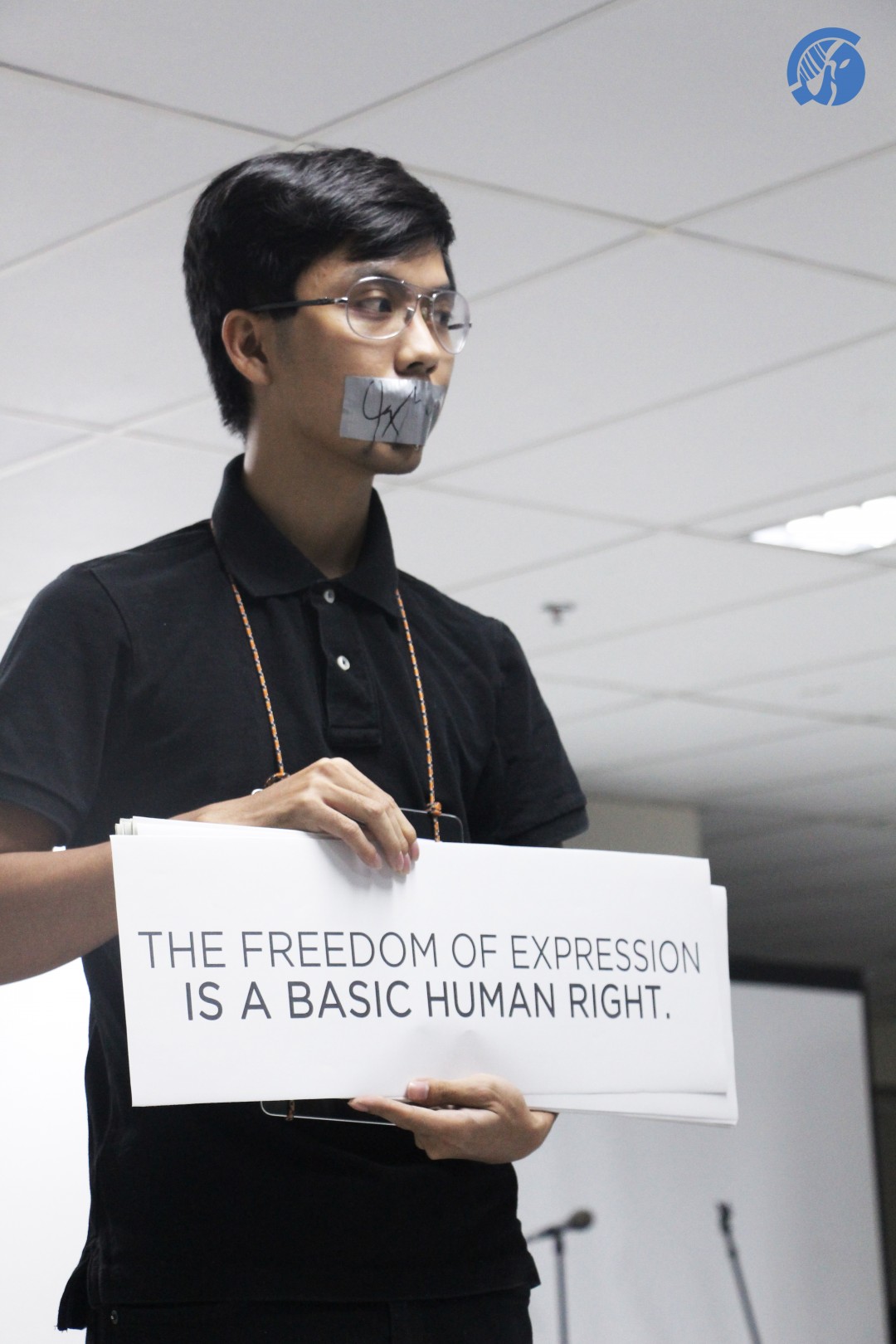
A political science student presents during the 4th Body Politique, an annual project event of the Political Sociology class, in collaboration with Feature Writing/Creative Nonfiction classes. Students use their bodies as their means to invoke powerful messages. Photo by Ian Derf Salvaña
Students from Social Sciences and Humanities and Letters converged to refract the discussion of body politics through the prism of art and literature at Body Politique: Verbo et Corpus, last Feb. 10 at Room F213.
Verbo et Corpus (Text and Flesh) is a performance art concert and a joint venture of the Political Sociology and Feature Writing/Creative Nonfiction classes, filled with performance poetry and actuated body monologues. The event aims to question the concepts and “truths” that people have come to assume and accept about the human body.
Groups of Political Science, Sociology, and English Language students took to the stage to shed light on different social issues, among which were women empowerment, beauty standards and self-acceptance, and systemic oppression of the unprivileged. The students raised problems and their causes, but also hinted at a possible alternative solution and re-thinking of the issue, one that offers hope––using only their bodies.
This year marks the fourth time the Body Politique event is held, and the first time for it to collaborate with a humanities class.
When asked about how the collaboration came to be, Feature Writing/Creative Nonfiction Professor Hazel Meghan Hamile described the potent combination of text and flesh.
“Theirs is a performance art; more of actions and we want to supply the words. I wanted to see how the text could be performed. I think they’re [also] looking into how the theory can be palpable to the audience,” she said.
Hamile also touched on the powerful connection between performance art and body politics.
“The body itself is a vessel, wherein your body has a story to tell. The markings on it, the scars on it––everything needs to be told.”
Political Sociology professor Dennis Coronel touched on what body politics means.
“Basically, it’s all about how we problematize how our bodies become political arenas [because] of the manipulations of government and economy. We see a lot of the power relations, like who prescribes the standards of beauty and the power that goes with that, and how we kind of condition our bodies so that we fit to the demands of society. Not everyone can get into that, […] and the worst thing is, we accept it’s normal, but it’s not and therefore we have to talk about it,” he said.
Coronel concluded the event by emphasizing the pervasiveness of politics and how it extends to the lives of the masses.
“Politics is not just in Malacañang. Politics is in the everyday moments of our lives. It’s not something that is so detached from [us]; from what these people showed, politics is in our body, ourselves.”